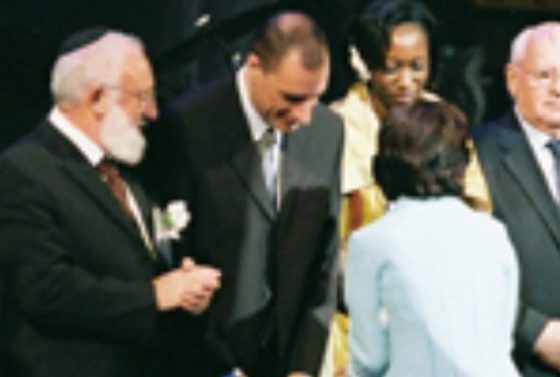Humans are emotional beings. Feelings guide us, determine our thoughts, our decisions in life, and our judgment.
Whatever we do, we do it to feel good or to avoid feeling bad. Feelings are so central to our being that they even determine our memory. Why then do we not remember the most critical moment of our lives, the moment of birth? In fact, we also do not remember our formative years, when we are one or two years old. The reason is that in the first years of life, our physical senses quickly develop but our emotional world, our “self,” lags behind, and before we have a distinct “self” with its own emotions, we do not attach emotions to events, and therefore do not remember them, at least not more than as mere pictures.
Even later in life, at age three or four, from which many of us do have memories, they are still vague and incomplete, as though they are “immature” or “primitive” forms of memory.
““Real” memories begin when we begin to develop a psyche, a self that recognizes itself as an individual being. Once we perceive ourselves as separate beings, with our own thoughts and feelings, and we communicate with others as distinct individuals communicating with other distinct individuals, we transition from being little animals with the potential to become human beings into actual people.”
“Real” memories begin when we begin to develop a psyche, a self that recognizes itself as an individual being. Once we perceive ourselves as separate beings, with our own thoughts and feelings, and we communicate with others as distinct individuals communicating with other distinct individuals, we transition from being little animals with the potential to become human beings into actual people.
The transition reflects itself in the way children connect with others, and becomes fully developed once we begin to develop hormonal attraction, in early adolescence.
This development, which is uniquely human, points to the reason for the creation of human beings. We are not meant to remain like animals; we are meant to ask about our world, about the reason for its existence, and for our existence in it. We are meant to ask about and understand the purpose of our lives beyond the physical level. Only once our emotions are fully developed can we begin to explore such questions seriously.
For me, that moment came with the question “What’s next?” I would ask myself, “What’s next, school, university, and…?” I did not have an answer. Because of it, I did not want to learn; I became apathetic. It was an awful feeling, a feeling of futility, of being forced to do something meaningless.
Not everyone is tormented by this question. Some people go through life chasing wealth or prestige, and are satisfied with that. The meaning of it all does not trouble them.
“The meaning of life can be revealed only to those who ask about it. To varying degrees, the question appears in everyone, but only those who are haunted by it can find the answer.”
Yet, the meaning of life can be revealed only to those who ask about it. To varying degrees, the question appears in everyone, but only those who are haunted by it can find the answer.
The answer is that we are born and live only in order to develop the soul. The soul is not something within us, but between us. The soul is a special connection between people, which we can develop only if we feel that our existing connections, where we seek to constantly consume and absorb, do not satisfy us. When we begin to search for reciprocity, we begin to discover a completely new level of existence that is undetectable to those who are guided only by self-interest.
People who develop the soul begin to see the web, the network that connects all things, and how everything affects everything else. These connections are the soul, and revealing them is the purpose of our existence. All other beings function instinctively within the network, and only humans can come to understand this matrix of existence and operate within it as cognizant beings. Developing that consciousness is the purpose of our lives.











